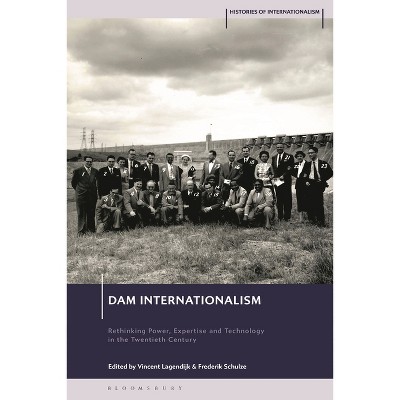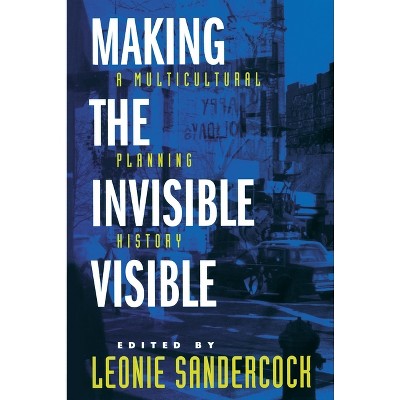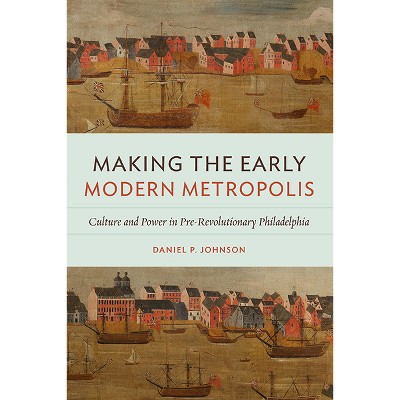Cosmopolitan Elites and the Making of Globality - (Histories of Internationalism) by Leonie Wolters

$115.00 when purchased online
Target Online store #3991
About this item
Highlights
- As ideologies such as communism, fascism and various nationalisms vied for global domination during the first half of the 20th century, this book shows how a specific group of individuals - a cosmopolitan elite - became representatives of those ideologies the world over.
- About the Author: Leonie Wolters is a postdoc researcher at the Leibniz Centre for Contemporary History in Potsdam, Germany.
- 272 Pages
- History, Modern
- Series Name: Histories of Internationalism
Description
About the Book
This book shows how the 20th century world was shaped by a group of cosmopolitan elites from Asia who embraced internationalism and circulated ideologies throughout their global networks.Book Synopsis
As ideologies such as communism, fascism and various nationalisms vied for global domination during the first half of the 20th century, this book shows how a specific group of individuals - a cosmopolitan elite - became representatives of those ideologies the world over.Centering on the Indian intellectual M.N Roy, Cosmopolitan Elites and the Making of Globality situates his life within various social circles that covered several ideological realms and continents. An example of an individual who represented ideologies such as anticolonial nationalism, communism and humanism, Roy is identified as unusual but by no means singular in this capacity, and shows how other elites were similarly able to represent ideologies that sought to make the world anew.
This book explores how Roy and his peers and competitors became a political elite as they cultivated a cosmopolitan reputation that meant they were taken seriously even when speaking of regions outside of their own. By considering the social and performative practices that turned them into credible, global, cosmopolitans, Wolters uncovers the exclusive basis on which the universal claims of world-changing ideologies were made.
Review Quotes
This global history of M.N. Roy and many of his allies (as well as critics) offers an exciting angle into the internationalism of Indian anti-colonial revolutionaries by offering an analysis of "smooth, distinguished cosmopolitanism," exemplified by culinary and sartorial choices, clandestine spaces, and sensual pleasures of exiles and itinerants.
Neilesh Bose, Associate Professor of History and Canada Research Chair, University of Victoria, Canada
This is a thoroughly fascinating book. It challenges fundamental assumptions of what makes a cosmopolitan person while being a new model of intellectual history. By looking at M. N. Roy's border crossing, global thinking, and subversive practices, Leonie Wolters offers original insights into intellectual globalization - and how one individual served an ideology that claimed universal meaning.
Jeremy Adelman, Director Global History Lab, University of Cambridge, UK
About the Author
Leonie Wolters is a postdoc researcher at the Leibniz Centre for Contemporary History in Potsdam, Germany. Having studied in Utrecht, Edinburgh and Dar es Salaam she has also worked in journalism and created several documentaries for Dutch radio.Dimensions (Overall): 9.21 Inches (H) x 6.14 Inches (W) x .63 Inches (D)
Weight: 1.23 Pounds
Suggested Age: 22 Years and Up
Number of Pages: 272
Genre: History
Sub-Genre: Modern
Series Title: Histories of Internationalism
Publisher: Bloomsbury Publishing PLC
Theme: 20th Century
Format: Hardcover
Author: Leonie Wolters
Language: English
Street Date: February 8, 2024
TCIN: 93124643
UPC: 9781350373150
Item Number (DPCI): 247-46-0917
Origin: Made in the USA or Imported
Shipping details
Estimated ship dimensions: 0.63 inches length x 6.14 inches width x 9.21 inches height
Estimated ship weight: 1.23 pounds
We regret that this item cannot be shipped to PO Boxes.
This item cannot be shipped to the following locations: American Samoa (see also separate entry under AS), Guam (see also separate entry under GU), Northern Mariana Islands, Puerto Rico (see also separate entry under PR), United States Minor Outlying Islands, Virgin Islands, U.S., APO/FPO
Return details
This item can be returned to any Target store or Target.com.
This item must be returned within 90 days of the date it was purchased in store, shipped, delivered by a Shipt shopper, or made ready for pickup.
See the return policy for complete information.











